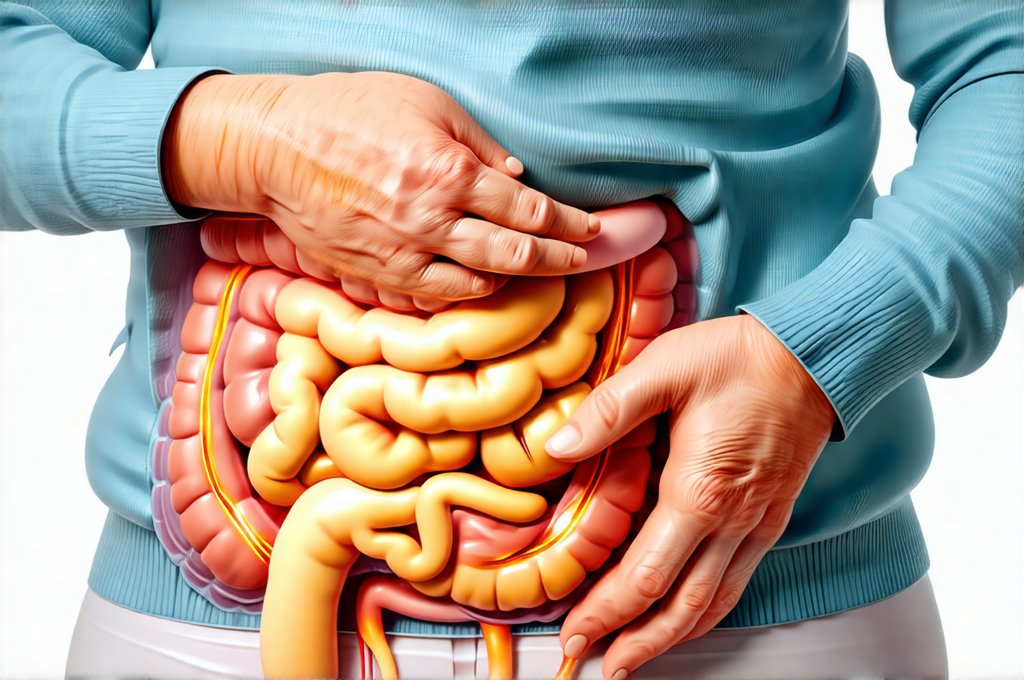Many people experience a noticeable slowing down of digestion as evening approaches. This isn’t always cause for alarm – our bodies naturally shift gears throughout the day, prioritizing different functions based on activity levels and time of day. However, when this slowdown becomes significant, causing discomfort like bloating, gas, or a feeling of fullness that lingers long after eating, it’s worth investigating to understand the underlying causes and explore potential strategies for relief. The digestive system is incredibly complex, influenced by everything from what we eat to how stressed we are, making pinpointing the exact reason behind evening sluggishness a bit like detective work.
It’s important to differentiate between occasional evening discomfort and chronic digestive issues. A one-off instance of feeling full or bloated after a large meal is usually normal. But if this happens frequently, interferes with sleep, or is accompanied by other concerning symptoms (like unexplained weight loss, persistent abdominal pain, or changes in bowel habits), it’s essential to consult a healthcare professional for proper evaluation and guidance. This article will explore common reasons why digestion might slow down in the evening and offer some practical steps you can take to support healthy digestive function – always remembering that this information is not a substitute for medical advice.
Common Culprits Behind Evening Digestive Slowdown
The slowing of digestion as evening arrives is often multifaceted, rarely stemming from just one single cause. A key factor is our natural circadian rhythm. During the day, when we’re active, digestive processes are generally more efficient. As evening approaches and activity levels decrease, so does metabolic rate, including the speed at which food moves through the digestive system. This isn’t a problem in itself; it’s simply how our bodies are designed to function. However, certain lifestyle factors can exacerbate this natural slowdown.
- Dietary choices play a huge role. Heavy, fatty meals or excessive sugar intake close to bedtime can overwhelm the digestive system, making it work harder and slower. Similarly, consuming large portions – regardless of what’s in them – can contribute to sluggish digestion. Thinking about digestive support foods could be helpful!
- Stress levels are also incredibly impactful. The “fight or flight” response triggered by stress diverts blood flow away from the digestive system, hindering its ability to function optimally. Chronic stress can lead to ongoing digestive issues and make evening slowdown even more pronounced. Understanding why gas builds up can also alleviate some stress.
- Hydration status is often overlooked. Dehydration slows down digestion overall, as water is essential for moving food through the digestive tract.
Finally, underlying medical conditions – while less common – can also contribute. Conditions like Irritable Bowel Syndrome (IBS), Gastroparesis (delayed stomach emptying), or even thyroid disorders can all impact digestive function and potentially worsen evening symptoms. It’s crucial to rule these out with a healthcare professional if your concerns are persistent. If you’re worried, it may be time to ask your doctor for a full assessment.
Lifestyle Adjustments for Improved Evening Digestion
Addressing the root causes of evening digestive slowdown often involves making changes to lifestyle habits. These adjustments aren’t about drastic overhauls; they’re about incorporating small, sustainable practices that support healthy digestion. Mindful eating is a fantastic starting point. This means paying attention to your food – both physically and emotionally – while you eat. Savor each bite, chew thoroughly, and avoid distractions like television or phones. Chewing food properly breaks it down mechanically, making it easier for the digestive system to process.
Regular physical activity throughout the day can significantly improve digestion. Exercise stimulates intestinal motility (the movement of food through the digestive tract), helping to prevent constipation and bloating. Even a brisk walk after dinner can make a difference. Similarly, managing stress levels is crucial. Techniques like meditation, yoga, deep breathing exercises, or simply spending time in nature can help calm the nervous system and improve digestive function.
Another key area to focus on is timing your meals. Avoid eating large meals close to bedtime. Allow at least 2-3 hours between your last meal and going to sleep to give your body time to digest properly. Consider incorporating lighter, easier-to-digest foods into your evening meal – think steamed vegetables, lean protein, and whole grains. Finally, ensuring adequate hydration throughout the day is vital. Aim for at least eight glasses of water daily, and avoid sugary drinks or excessive caffeine, which can disrupt digestive function.
Identifying Food Sensitivities
Food sensitivities are often hidden contributors to digestive issues. Unlike food allergies, which trigger an immediate immune response, food sensitivities can cause delayed symptoms like bloating, gas, abdominal pain, or fatigue – sometimes hours or even days after consuming the offending food. These subtle reactions can be difficult to identify on your own, but there are strategies you can use.
- Elimination diet: This involves temporarily removing potential trigger foods from your diet (common culprits include dairy, gluten, soy, corn, and sugar) for a period of 2-3 weeks, then slowly reintroducing them one at a time to monitor for symptoms.
- Food diary: Keeping a detailed food diary can help you identify patterns between what you eat and how you feel. Record everything you consume, along with any digestive symptoms you experience.
- Professional testing: While not always necessary, some healthcare providers offer food sensitivity testing that can help pinpoint specific triggers.
It’s important to note that an elimination diet should be undertaken with guidance from a registered dietitian or healthcare professional to ensure adequate nutritional intake and avoid unnecessary restrictions. The goal isn’t necessarily to eliminate foods permanently but rather to identify those that cause problems and adjust your diet accordingly. Paying attention to how different foods make you feel is the cornerstone of identifying sensitivities. If you suspect an issue, understanding lab markers can be a good starting point.
Optimizing Your Evening Routine
Beyond dietary changes, a few tweaks to your evening routine can significantly impact digestion. Creating a relaxing bedtime ritual signals to your body that it’s time to wind down and prepare for sleep – which also supports optimal digestive function. This might include taking a warm bath, reading a book (avoiding screens!), or listening to calming music.
- Limit screen time: Blue light emitted from electronic devices can interfere with melatonin production, disrupting sleep and potentially impacting digestion. Aim to put away phones, tablets, and laptops at least an hour before bedtime.
- Establish a regular sleep schedule: Going to bed and waking up around the same time each day helps regulate your circadian rhythm, promoting better digestive function and overall health.
- Consider gentle movement: Light stretching or restorative yoga poses can help relieve tension and promote relaxation, further supporting digestion.
Another often-overlooked aspect is posture. Slouching or lying down immediately after eating can hinder digestion. Try to maintain an upright posture for at least 30 minutes after meals to allow gravity to assist with the digestive process. Finally, if you’re experiencing frequent heartburn or acid reflux, elevate the head of your bed slightly to prevent stomach acid from flowing back into the esophagus.
When To Seek Professional Help
While many cases of evening digestive slowdown can be managed with lifestyle adjustments, it’s crucial to recognize when professional help is needed. Don’t hesitate to consult a healthcare provider if you experience any of the following:
- Persistent abdominal pain that doesn’t improve with over-the-counter remedies.
- Unexplained weight loss or appetite changes.
- Significant changes in bowel habits (e.g., diarrhea, constipation, blood in stool).
- Frequent nausea or vomiting.
- Difficulty swallowing.
- Symptoms that interfere with your daily life or sleep.
A healthcare professional can help rule out underlying medical conditions and recommend appropriate treatment options. They may suggest diagnostic tests like a colonoscopy, endoscopy, or breath test to identify the cause of your digestive issues. Remember, self-diagnosing can be dangerous. Seeking expert guidance is always the best course of action when dealing with persistent health concerns. It’s better to be proactive about your health and address potential problems early on rather than letting them escalate. If you are looking for something else to drink in the morning, consider morning drinks. You might also want to check out simple ways doctors check for inflammation, or understand why gas builds. Lastly, learning to recognize reactions can be helpful in understanding your digestive health.


















